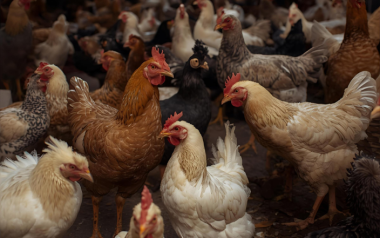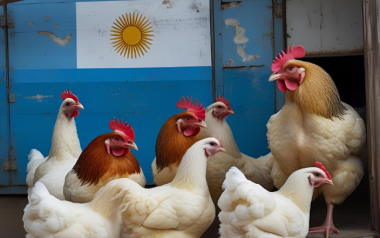21 May 2025
Philippine chicken meat supply sufficient despite planned Brazil ban
The Philippines assures stable chicken supply despite an impending import ban on Brazilian poultry products, with alternative sources and strong local production mitigating potential short-term gaps.
The Philippine Department of Agriculture (DA) has assured the public that the country’s chicken meat supply will remain stable despite the impending import ban on poultry products from Brazil.
The ban is set to take effect following the first confirmed case of highly pathogenic avian influenza (HPAI) in a commercial farm in Montenegro, Rio Grande do Sul.
Brazil is the world’s largest of chicken meat and the leading supplier to the Philippines. However, DA Secretary Tiu Laurel Jr said that the country has other sources that can meet demand.
Short-term supply adjustments
Mr Laurel acknowledged that a brief supply gap may happen while importers shift to alternative sources, but noted that local poultry production is doing well.
However, he also said some slight price adjustments may be in store as the country shifts to more expensive suppliers.
“Brazil’s advantage is that they are the cheapest source of [chicken meat products], so our importers and processors may buy at a slightly higher price, but I think the price difference is very little,” he said during a press briefing.
Data from the Bureau of Animal Industry (BAI) show that in the first two months of 2025, Brazil supplied 44,149 tons of chicken meat to the Philippines, or 57% of total imports for the period. Rounding off the top five sources are the US, the Netherlands, Poland, and Canada. Other suppliers are Belgium, Chile, and the UK.
Meanwhile, local production remains strong, hitting 550,499 tons in Q1 2025, up nearly 9% year-on-year.
Minimizing disruptions
To minimize disruptions in poultry imports, the DA recently updated its poultry trade policy. Under the new guidelines, the country will implement a regionalization approach for avian influenza-affected countries rather than imposing blanket bans.
This will restrict imports only from specific areas with confirmed outbreaks, allowing trade to continue from disease-free zones.
The new guidelines aim to keep the country’s food supply stable while following global trade and animal health standards.
The US and the UK already have regionalization agreements with the Philippines, allowing poultry imports from disease-free areas. Other countries, including Brazil, are currently applying for the same recognition.
Jess Cham, President of the Meat Importers and Traders Association, told aviNews Asia that they hope the Philippines can fast-track the regionalization agreement with Brazil so that only the affected areas will be banned.
Safety measures in place
Meanwhile, BAI assured consumers that local poultry products, including chicken meat and eggs remain safe for consumption despite reported AI cases in Camarines Sur and Pampanga provinces.
The agency immediately implemented stringent quarantine and surveillance measures, including depopulation, disinfection, and testing.
Evaluation of all collected samples tested negative, showing that the outbreak in Camarines Sur has been contained. As of May 16, only a single village in Pampanga province has ongoing AI cases affecting ducks.








































